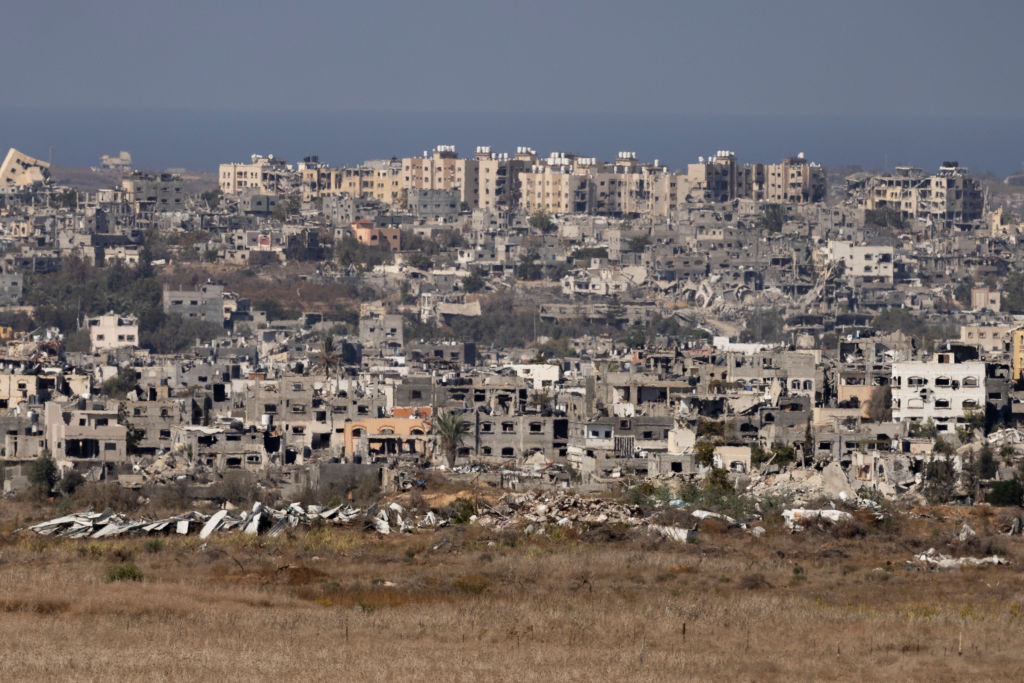What to Know
- Pennsylvania Attorney General, Josh Shapiro, plans to address the results of the two-year investigation by the end of June.
- Two priests have been arrested on child sexual abuse charges because of the probe.
- It is unclear whether any other charges will be filed as a result of the report, because of Pennsylvania's statute of limitations laws.
The results of a lengthy probe into the handling of sexual abuse claims by Roman Catholic dioceses throughout Pennsylvania, which victim advocates say will be the biggest and most exhaustive ever by a U.S. state, could be made public within weeks.
A statewide grand jury spent nearly two years looking into the abuse scandal, and Pennsylvania Attorney General Josh Shapiro has said he plans to address the panel's findings by the end of June.
What to Expect
The grand jury investigated six of the state's eight dioceses, which collectively minister to more than 1.7 million Catholics. The report is expected to reveal details of widespread abuse and efforts to conceal and protect abusive priests.
A judge's ruling last week gave the first real details of an investigation that started in July 2016. Judge Norman Krumenacker rejected an effort to delay the report's release or allow people named in the report to challenge parts of it before its release.
Krumenacker, a Cambria County judge who has been overseeing the grand jury, wrote in his opinion that the investigative body had heard from dozens of witnesses and reviewed over half a million pages of internal documents from diocesan archives. The investigation involved allegations of child sexual abuse, failure of church structures to report it to law enforcement and obstruction of justice by people "associated with the Roman Catholic Church, local public officials and community leaders," he said.
U.S. & World
Stories that affect your life across the U.S. and around the world.
The report could be groundbreaking, said Terry McKiernan, president of BishopAccountability.org. Several smaller states, including Maine and New Hampshire— each with one diocese that covers the full state — have issued reports, but no state the size of Pennsylvania has conducted a full accounting, he said.
"You're going to learn a lot about this crisis that you never knew before," he said. "Another thing you are going to see in a report of this geographic scope is an accounting of the geographic solution, meaning within the Pennsylvania dioceses there is a certain amount of mobility, and priests who have trouble in one diocese might be transferred to another within the state. There hopefully will be some accounting of that."
Two priests have been arrested on child sexual abuse charges as a result of the probe, one each in the Erie and Greensburg dioceses. Prosecutors have said one of those priests assaulted a boy more than 20 times as he was serving as an altar boy and would later require the boy to confess the abuse to him.
The overall investigation involves the dioceses of Allentown, Erie, Greensburg, Harrisburg, Pittsburgh and Scranton.
Statute of Limitations
It is unclear whether there will be any other charges filed as a result of the report, because of Pennsylvania's statute of limitations on child sexual abuse crimes.
Under state law, criminal charges can be filed up to the time the person making the claim of child sexual abuse is 50 years old. Civil claims can be filed for child sexual abuse until the person alleging the abuse turns 30.
Previously release grand jury reports on the other two Pennsylvania dioceses — Philadelphia and Altoona-Johnstown— advocated a two-year window to allow people alleging long-ago abuse to pursue civil claims. Efforts to pass that legislation have stalled or been blocked.
Rep. Mark Rozzi, who put forward the legislation, said he testified about his own experience of abuse at the hands of a priest in the Allentown diocese. Rozzi said he plans to reintroduce legislation to extend the statute of limitations. The church has said changing the statute of limitations would be unfair to schools and parishes and could be financially crippling.
Previous Grand Juries
In 2005, the Philadelphia district attorney's office released a scathing grand jury report that said allegations against more than 100 priests and other clergy had been looked into by the panel. The report criticized internal practices of moving priests and not reporting allegations to law enforcement.
In 2011, the office released another report, having instructed a second grand jury to examine whether the diocese had changed its practices. The investigation resulted in several priests and members of the clergy being charged with crimes related to child sexual abuse, including Monsignor William Lynn, who was charged with endangering children for allegedly moving priests from parish to parish instead of removing them or reporting allegations to police.
In 2016, the Pennsylvania attorney general's office released the results of a statewide investigative grand jury in the Altoona-Johnstown diocese, the state's least populated. It detailed allegations of abuse against more than 50 priests and others in the church by hundreds of children over decades. The report noted the process by which bishops were told to keep secret the allegations of abuse by priests.
Once that first statewide grand jury report was released, Rozzi said, the attorney general's office was overrun with phone calls from people alleging abuse by clergy or by teachers at religious schools.
"We demanded that they look into the remaining dioceses at this point. If you think it's going on here and here, then you know. ... It's happening in the remaining dioceses," he said.



